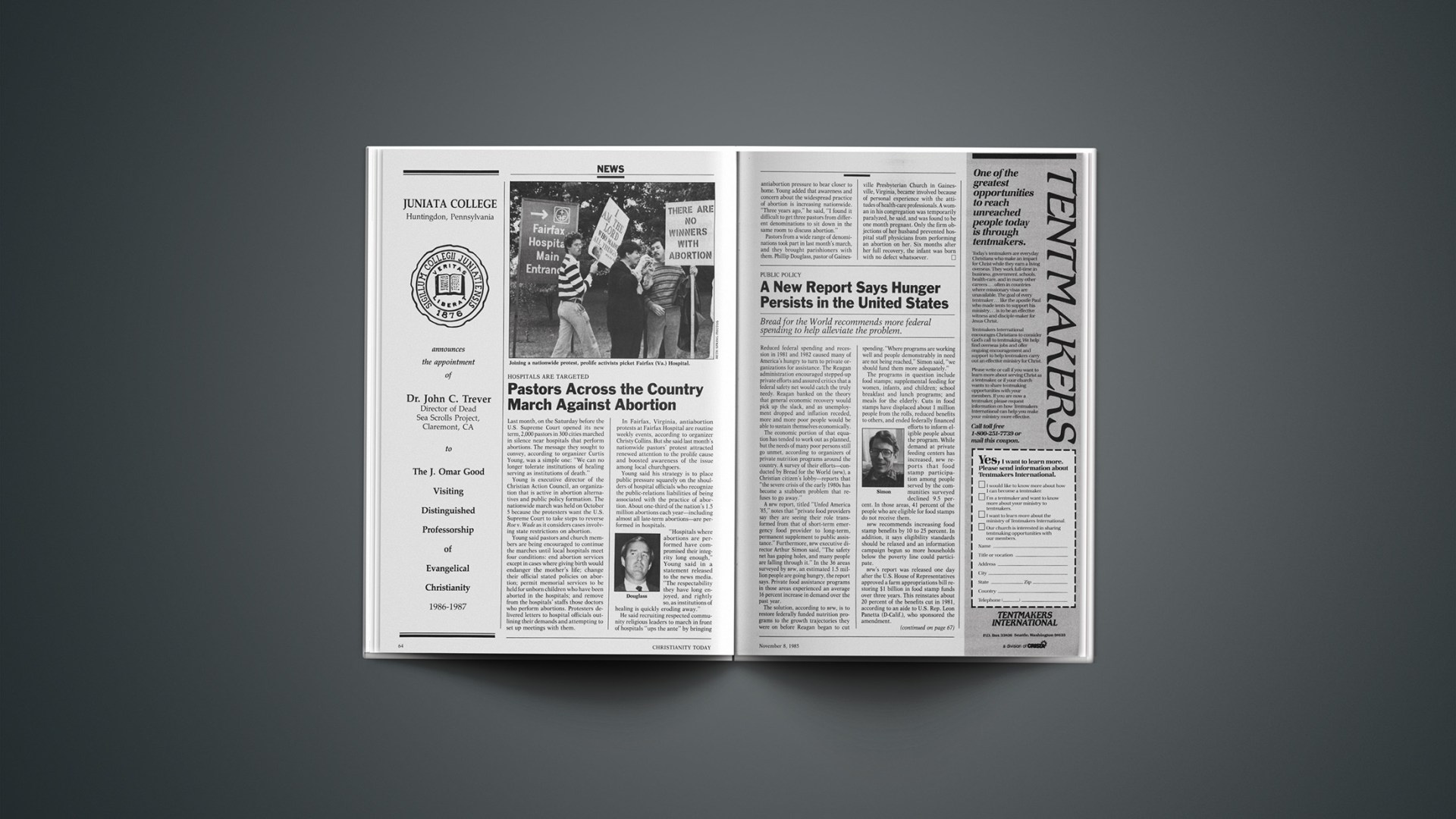Last month, on the Saturday before the U.S. Supreme Court opened its new term, 2,000 pastors in 300 cities marched in silence near hospitals that perform abortions. The message they sought to convey, according to organizer Curtis Young, was a simple one: “We can no longer tolerate institutions of healing serving as institutions of death.”
Young is executive director of the Christian Action Council, an organization that is active in abortion alternatives and public policy formation. The nationwide march was held on October 5 because the protesters want the U.S. Supreme Court to take steps to reverse Roe v. Wade as it considers cases involving state restrictions on abortion.
Young said pastors and church members are being encouraged to continue the marches until local hospitals meet four conditions: end abortion services except in cases where giving birth would endanger the mother’s life; change their official stated policies on abortion; permit memorial services to be held for unborn children who have been aborted in the hospitals; and remove from the hospitals’ staffs those doctors who perform abortions. Protesters delivered letters to hospital officials outlining their demands and attempting to set up meetings with them.
In Fairfax, Virginia, antiabortion protests at Fairfax Hospital are routine weekly events, according to organizer Christy Collins. But she said last month’s nationwide pastors’ protest attracted renewed attention to the prolife cause and boosted awareness of the issue among local churchgoers.
Young said his strategy is to place public pressure squarely on the shoulders of hospital officials who recognize the public-relations liabilities of being associated with the practice of abortion. About one-third of the nation’s 1.5 million abortions each year—including almost all late-term abortions—are performed in hospitals.
“Hospitals where abortions are performed have compromised their integrity long enough,” Young said in a statement released to the news media. “The respectability they have long enjoyed, and rightly so, as institutions of healing is quickly eroding away.”
He said recruiting respected community religious leaders to march in front of hospitals “ups the ante” by bringing antiabortion pressure to bear closer to home. Young added that awareness and concern about the widespread practice of abortion is increasing nationwide. “Three years ago,” he said, “I found it difficult to get three pastors from different denominations to sit down in the same room to discuss abortion.” Pastors from a wide range of denominations took part in last month’s march, and they brought parishioners with them. Phillip Douglass, pastor of Gainesville Presbyterian Church in Gainesville, Virginia, became involved because of personal experience with the attitudes of health-care professionals. A woman in his congregation was temporarily paralyzed, he said, and was found to be one month pregnant. Only the firm objections of her husband prevented hospital staff physicians from performing an abortion on her. Six months after her full recovery, the infant was born with no defect whatsoever.










